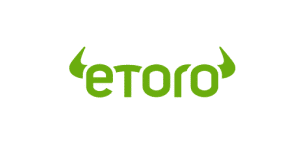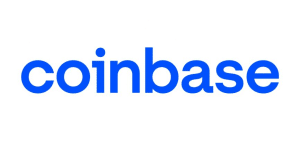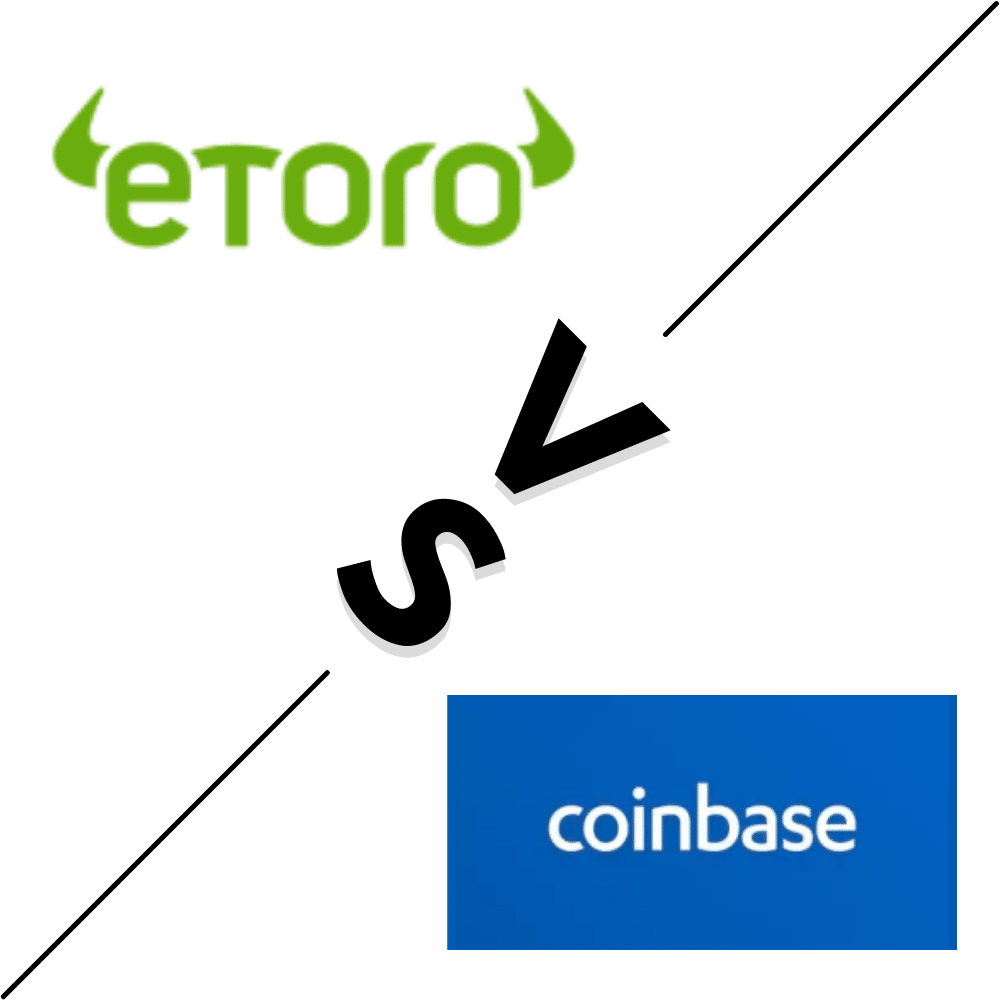Determining whether eToro surpasses Coinbase or vice versa is not always a straightforward task. In the following discussion, we will compare eToro and Coinbase, considering a range of factors.
Coinbase, a cryptocurrency exchange founded in San Francisco in 2012, currently boasts a valuation of approximately $50 billion. Operating in over 100 countries, Coinbase competes with several reputable brokers, including eToro. eToro, on the other hand, is a multi-asset online broker known for its social and copy trading capabilities. It was established by Ronen Assia, Yoni Assia, and David Ring in 2006 and serves a large clientele of investors across more than 140 countries.
While these platforms differ in functionality, they intersect in the realm of cryptocurrency trading. In this article, we will conduct an in-depth comparison of these two brokers, delving into their respective strengths and weaknesses, including their features, security measures, and more.

- Best Copy Social Trading Platform
- Secure Storage
- Trusted by Millions
- Well Regulated
Please note that CFDs (Contract for Difference) are intricate instruments that carry a high risk of rapid capital loss due to leverage. Eighty-one percent of retail investor accounts lose money when trading CFDs with this provider. It is imperative to thoroughly grasp how CFDs operate and assess whether you can afford the high risk of losing your funds.

- Secure Storage
- FDIC Insurance
- Wide Variety of Cryptocurrencies Available
- Supported in Over 100 Countries
- Over 68 Million Users
| Feature | Coinbase | eToro |
|---|---|---|
| Foundation Year | 2012 | 2007 |
| Headquarters | United States | Israel |
| Minimum Deposit | $50 | $50 |
| Inactivity Fee | No | Yes |
| Demo Account | Yes | Yes |
| Islamic Account | N\A | Yes |
| Regulation | FinCEN | FCA, CySEC, and ASIC |
| Mobile App | Yes | Yes |
| US-accepted | Yes | Yes |
| Our Score | 4.7/5 | 4.8/5 |
Cryptocurrency Compared
| Coinbase | eToro |
|---|---|
| Bitcoin (BTC) | Bitcoin (BTC) |
| Bitcoin Cash (BCH) | Bitcoin Cash (BCH) |
| Aave (AAVE) | Ethereum (ETH) |
| Ethereum Classic (ETC) | Ethereum Classic (ETC) |
| Ethereum (ETH) | XRP by Ripple Labs (XRP) (not available in the U.S.) |
| Algorand (ALGO) | Litecoin (LTC) |
| Cosmos (ATOM) | Dogecoin (DOGE) |
| EThe Balancer (BAL) | Dash (DASH) |
| Band Protocol (BAND) | Stellar Lumens (XLM) |
| Basic Attention Token (BAT) | Cardano (ADA) |
| Litecoin (LTC) | IOTA (MIOTA) |
| Bancor Network Token (BNT) | Zcash (ZEC) |
| Bitcoin Satoshi's Vision (BSV) (Send Only) | NEO (NEO) |
| Celo (CGLD) | EOS (EOS) |
| Compound (COMP) | TRON (TRX) |
| Civic (CVC) | Tezos (XTZ) |
| EOS (EOS) | Chainlink (LINK) |
| Dai (DAI) | Uniswap (UNI) |
| Dash (DASH) | Binance Coin (BNB) (not available in the U.S.) |
| districtOx (DNT) | |
| Filecoin (FIL) | |
| Kyber Network (KNC) | |
| Chainlink (LINK) | |
| Loom Network (LOOM) | |
| Loopring (LRC) | |
| The Graph (GRT) | |
| Golem (GNT) | |
| NuCypher (NU) | |
| OMG Network (OMG) | |
| Orchid (OXT) | |
| Decentraland (MANA) | |
| Maker (MKR) | |
| Numeraire (NMR) | |
| Ripples (XRP) | |
| Tezos (XTZ) | |
| Yearn.finance (YFI) | |
| Ren (REN) | |
| Augur (REP) | |
| Synthetix (SNX) | |
| Uniswap (UNI) | |
| Wrapped Bitcoin (WBTC) | |
| Stellar Lumens (XLM) | |
| USD Coin (USDC) | |
| Zcash (ZEC) | |
| 0x (ZRX) | |
| Universal Market Access (UMA) |
Winner: Coinbase
Pros: Where Each Broker Excels
Most reputable brokers have standout features worth boasting about. We've conducted a comparison to highlight the key advantages of choosing Coinbase over eToro, and here's what we've found
Coinbase
- Commissions
For users of Coinbase's Pro service tier, the platform distinguishes itself in terms of commissions. If your monthly trading volume falls below $10,000, you'll incur a minimum fee of 0.5 percent at the Pro tier. However, Coinbase employs volume-based pricing, potentially reducing this fee further.
The Pro pricing structure operates on tiers, meaning that the more you trade, the lower your fees become. Your 30-day total dollar trading volume determines the amount you pay.
Moreover, Coinbase employs a maker-taker pricing model, wherein adding or taking liquidity from the market may entail different fees.
- Staking Rewards
Coinbase provides an opportunity for traders holding certain cryptocurrencies to participate in staking. Staking involves using your holdings to validate transactions in specific cryptocurrencies, earning you rewards shared by Coinbase.
This feature is presently available for a select few cryptocurrencies, including Ethereum. Coinbase manages the technical aspects, and the additional coins are periodically deposited into your account.
- Crypto Custody
Unlike many other brokers primarily focused on trading, Coinbase empowers users to take custody of their cryptocurrency assets. Clients can opt for Coinbase's proprietary cryptocurrency wallet or bring their own, allowing them to choose the solution that best suits their needs.
This sets Coinbase apart in an industry where most conventional brokers do not permit traders to hold their assets on their platform.
- Wide Selection of Cryptocurrency
Coinbase boasts an extensive array of cryptocurrencies, featuring over 50 options for trading. Whether you seek popular choices like Bitcoin and Ethereum or less-known alternatives, Coinbase offers easy access to a diverse range of cryptocurrencies.
Please note that trading restrictions and minimum/maximum withdrawal amounts may vary among cryptocurrencies, and certain coins may be restricted based on your state of residence. Coinbase's website provides a list of these limits for each supported cryptocurrency.
eToro
- Social Trading
eToro has cultivated a user-friendly and highly interactive social trading environment, characterized by features such as its newsfeed and seamless user interaction. This social component remains a pivotal aspect of the platform as eToro continues to enhance and expand its services.
- Over 1,000 Assets as CFDs
eToro offers an extensive selection of CFD trading options. The broker enables trading of CFDs across more than 1,000 diverse assets, encompassing Forex pairs, indices, commodities, ETFs, stocks, and cryptocurrencies. This broad market offering positions eToro as a versatile and accessible choice, especially for novice traders.
Cons: Areas for Improvement
No brokerage platform is flawless, and to gain insights into the drawbacks or potential concerns associated with Coinbase or eToro, consider the following comparisons:
Coinbase
- Trading Commissions on Basic Tier
Using Coinbase's Pro tier immediately can be advantageous, as it allows you to bypass the platform's basic tier service. Here are two common fees from the most recent fee schedule, illustrating what traders might pay when purchasing $1,000 worth of Bitcoin:
- A spread markup of 0.5%
- A 1.49% fee when using a bank account or Coinbase dollar wallet.
If you opt for Coinbase's basic tier, you'll incur a minimum fee of 1.99%. This percentage decreases as your transaction amount increases, but it varies when you cross the $200 threshold. Beyond this point, Coinbase switches to a payment method-based fee, starting at 1.49% and reaching 3.99% for debit card transactions. The spread markup is additional.
- Lack of Fee Transparency
Traders using Coinbase's basic platform may find it challenging to access a comprehensive fee schedule before executing a trade. While they can view their trading commission just before placing a trade, the absence of a pre-trade fee list can be a notable concern.
eToro
- No Hedging or Scalping
Unlike many other brokers, eToro does not permit hedging, scalping, or other algorithmic trading strategies. Therefore, if you are an experienced trader or contemplating day trading or scalping, you might want to explore alternative options.
Fees: Coinbase
On Coinbase, cryptocurrency transactions, such as buying Bitcoin or converting Ethereum back into U.S. dollars, incur both a Coinbase fee and a spread. The spread on Coinbase typically hovers around 0.50 percent for crypto purchases and sales but can vary based on market conditions. For cryptocurrency conversions, like trading Bitcoin for Ethereum, you may encounter spreads of up to 2.00 percent, contingent on market fluctuations. Notably, converting cryptocurrencies to other digital assets does not involve a Coinbase fee.
The Coinbase Fee is subject to variations based on your payment method, geographic location, and other variables. It may take the form of a fixed fee or a percentage of your transaction.
The Coinbase Fee varies depending on the payment type you use, your region, and other variables. It might be a flat fee or a percentage of your transaction.
Percentage
| Payment Method (Sale and Purchase) | Fee |
| U.S. Bank Account | 1.49% |
| Coinbase USD Wallet | 1.49% |
| Instant Card Withdrawal | Up to 1.5% (minimum $0.55) |
| PayPal or Debit Card | 3.99% |
Flat Fee
| Transaction Amount | Fee |
| Under or equal to $10 | $0.99 |
| Higher than $10 but under or equal to $25 | $1.49 |
| Higher than $25 but under or equal to $50 | $1.99 |
| Higher than $50 but under or equal to $200 | $2.99 |
In summary, if a user invests $50 in Bitcoin through Coinbase using a bank transfer, they will encounter a $0.25 spread along with a flat fee of $1.99, surpassing the alternative 1.49 percent fee option. This translates to approximately $47.76 worth of Bitcoin from the initial $50 deposit. While this fee may not seem substantial on its own, it accumulates as you make larger purchases.
Alternatively, users have the option to deposit cash into their Coinbase USD wallet and subsequently use those funds to buy cryptocurrency with the 1.49 percent fee mentioned earlier. Given the rapid fluctuations in cryptocurrency prices, maintaining USD in your Coinbase wallet can enable quicker responses to sudden price drops, potentially circumventing the need for protracted bank transfers, ensuring timely actions.
Below is a list of fees for depositing USD into Coinbase:
| Deposit Method | Fee |
| ACH Transfer | $0 |
| Wire Transfer | $10 ($25 outgoing) |
| PayPal | $2.5 |
Inactivity fee: Coinbase does not charge inactivity fee
Fees: eToro
eToro presents a variable spread of 1 pip on the EUR/USD pair, slightly higher than the industry average. Typically, retail traders choose eToro not for its spreads but for its outstanding social copy-trading platform features.
eToro charges trading fees in the form of spreads, which vary depending on market conditions. It employs a round-turn spread, meaning there's a single spread for both buying and selling crypto assets. Most Bitcoin spreads fall within the range of 1.9 to 2.9 percent.
eToro's trading fees are generally lower than the industry standard. The broker does not charge fees for US-listed stocks. For stock indexes, the Europe 50 CFD fee is 3%, while the S&P 500 CFD fee is 0.75%. Cryptocurrency spreads range from 0.75% to 5%, except when trading under the Australian Securities & Exchange Commission.
Withdrawals are free for US residents, with a $5 withdrawal fee for non-US traders. Transferring crypto from eToro incurs a 0.5 percent fee, capped at $50 and a minimum fee of $1.
Inactivity fee: If you don't log in for 12 months, eToro will begin charging a $10 monthly inactivity fee on any remaining balance.
Winner: eToro
Features & Accounts: eToro
eToro offers a diverse array of trading options and seamlessly integrates external crypto wallets to cater to experienced traders. Additionally, eToro allows leveraged trading outside of the United States.
The standout feature for eToro is its renowned CopyTrading function, enabling traders to replicate the actions of others, participating in their gains and losses, except in the United States.
Features & Accounts: Coinbase
Coinbase offers a signaling tool that provides anonymized data on top performers but falls short of the transparency and openness that eToro provides. The platform is under investigation for allegedly sharing data without the consent of the top traders being tracked. Coinbase Pro clients have had the option of leveraged trading on USD quoted books since February 2020.
Coinbase provides a limited range of trading options, but it is a growing broker.
Winner: eToro
Security: Coinbase
Coinbase is authorized to operate in the United Kingdom, although it's important to note that cryptocurrencies are not covered by the Financial Services Compensation Scheme (FSCS) despite Coinbase's FCA-issued e-money license.
Coinbase claims to store 98% of users' crypto in cold storage, while the remaining 2% aids in facilitating trading volume. Additionally, the platform has an insurance policy that safeguards cryptocurrency holdings.
However, there is no guarantee that your crypto will be returned to your wallet if it is stolen. Coinbase states on its website that "total losses may exceed insurance recoveries."
Coinbase offers security measures such as two-factor authentication, biometric logins (Face ID and fingerprint), and data encryption.
Losses resulting from unauthorized account access are not covered by the insurance policy, meaning if your identity is stolen or someone gains access to your Coinbase password and wallet, recovery may be challenging.
Security: eToro
eToro complies with FCA, CySEC, and ASIC guidelines, demonstrating measures in place to protect traders. Client funds are held in tier 1 banks on eToro, with SSL encryption safeguarding all personal information.
Negative balance protection ensures you cannot lose more money than you have in your account. If you reach a point where you cannot fund your position further, the broker generally closes it automatically, preventing your account balance from going below $0.
Winner: eToro
Customer Support: Coinbase
lacking. Users often report difficulties in reaching the support team and limited compensation for losses due to Coinbase's predominantly email-based customer support.
Coinbase offers email and phone support, with real-time communication with agents being challenging. The live chat option is available but managed by a bot, providing automated responses that may not address complex issues effectively.
Customer Support: eToro
eToro provides decent customer support, though it is not flawless. While eToro's customer support suffices for addressing straightforward problems, it may not excel in handling more complex issues.
A live chat option is available within the support center, although it is somewhat concealed within the FAQ section. Some traders have reported challenges in reaching the team during weekends.
eToro relies on support requests received through the trading interface, without offering phone or email support. However, each user's email inquiries receive prompt responses, typically within 24 hours. Nevertheless, some clients find eToro's customer support to be somewhat unresponsive.
Some clients report that the customer support of eToro is not responsive enough, so definitely keep that in mind.
Winner: Tie
Which One Is Right For You?
Coinbase serves as an excellent entry point for Bitcoin investment due to its user-friendly interface and educational resources. It simplifies the process of investing a small amount in Bitcoin for long-term purposes. It's a convenient option for beginners but may become limiting as your crypto trading experience grows.
With a diverse range of tradable cryptocurrencies, Coinbase offers a suitable starting point for those exploring investments beyond Bitcoin.
However, it's crucial to be aware of Coinbase's relatively high fees, which could be a drawback for active traders. For most general investors, these fees are a reasonable trade-off for the convenience, security, and comprehensive features they receive.
On the other hand, eToro is a regulated, zero-commission stock broker known for its safety measures. Its user-friendly platform and mobile trading app make it appealing to traders. eToro provides access to stocks, forex pairs, ETFs, and CFDs.
The platform supports 26 different languages and offers more than 70 technical indicators for charting. It's an excellent choice for novice traders requiring guidance, but it may not be ideal for high-volume or active traders due to the larger spreads and limited maximum trade sizes.
eToro's social trading platform is attractive for cryptocurrency investors interested in mimicking the strategies of experienced traders. It offers a broader selection of cryptocurrencies for trading compared to some other US-based brokers.
Keep in mind that eToro's social platform is open to anyone, including non-experts, which may influence your decision.
In conclusion, Coinbase suits beginners, while eToro caters to more experienced traders seeking a robust trading experience.

- Best Copy Social Trading Platform
- Secure Storage
- Commission Free Stocks
- Trusted by Millions
- Well Regulated
CFDs are complex instruments and come with a high risk of losing money rapidly due to leverage. 81% of retail investor accounts lose money when trading CFDs with this provider. You should consider whether you understand how CFDs work and whether you can afford to take the high risk of losing your money.

- Secure Storage
- FDIC Insurance
- Wide Variety of Cryptocurrencies Available
- 100+ Countries Supported
- Over 68 Million Users
